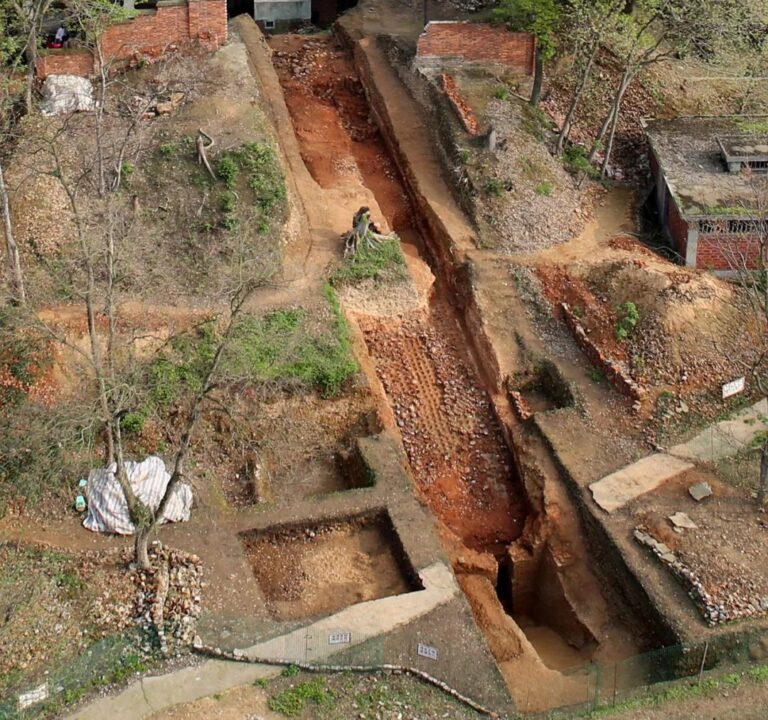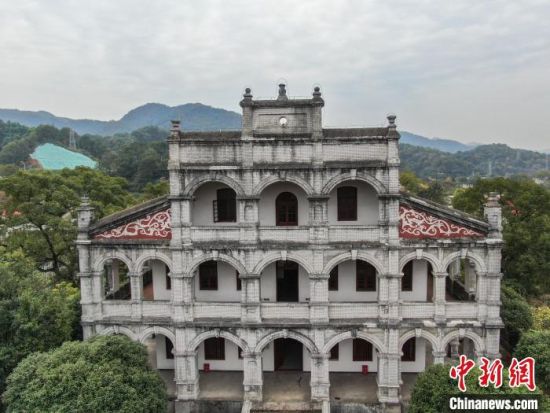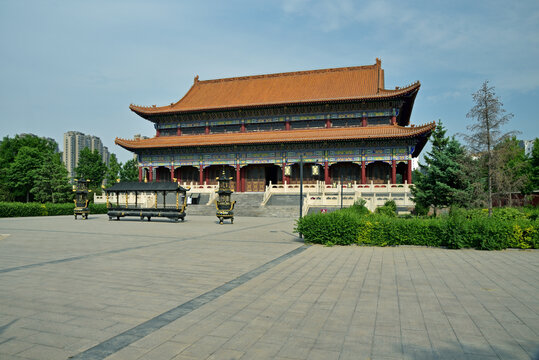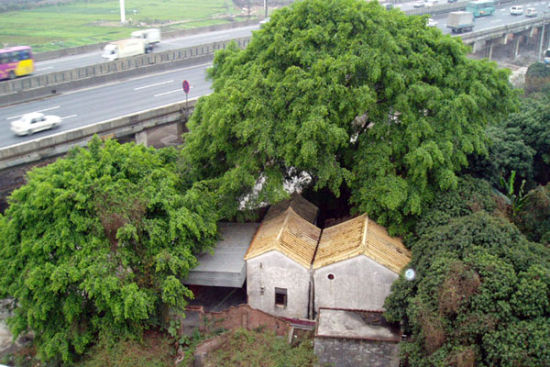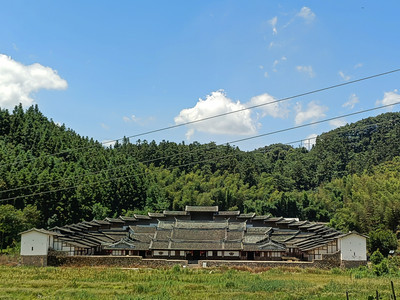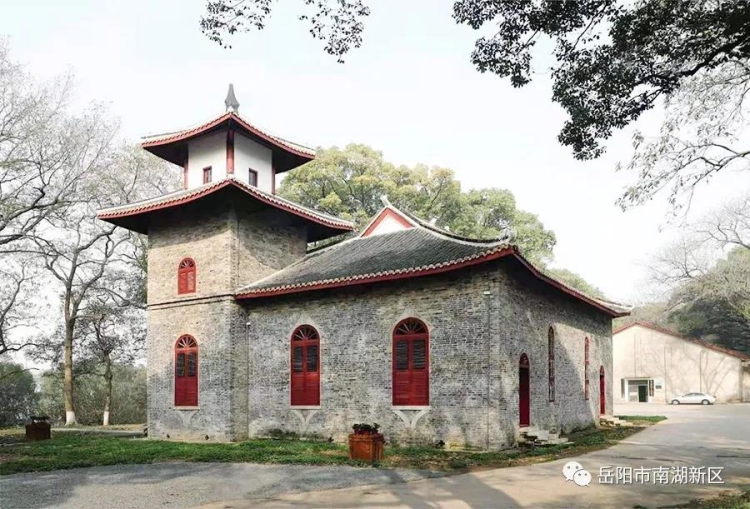Unveiling the Mysteries of Lishui Wuwenjian Ci: Your Ultimate Travel Guide
An Essential Guide to Visiting Lishui Wuwenjian Ci
In This Guide
- An Essential Guide to Visiting Lishui Wuwenjian Ci
- The Rich History of Lishui Wuwenjian Ci
- Main Highlights: What to See at Lishui Wuwenjian Ci
- Planning Your Visit: A Practical Guide
- Tickets, Hours, and Booking
- How to Get There
- Local Cuisine and Accommodation
- Frequently Asked Questions
- Final Thoughts on Your Trip
Nestled in the picturesque landscape of Yue Mountain Village, within the Qinyuan County of Lishui City, lies the Wu Wunian Ancestral Hall, a cultural gem steeped in history and tradition. Established during the Ming Dynasty in 1606 and reconstructed in the Qing Dynasty, this ancestral hall serves as a tribute to the Wu family, specifically honoring their esteemed ancestor, Wu Zhu, who was posthumously honored as “Wunian” by the Tang Dynasty.
Surrounded by lush greenery and the gentle flow of nearby streams, the hall’s serene setting enhances its architectural beauty and historical significance. The structure is a remarkable example of traditional Chinese architecture, featuring a rectangular layout with impressive dimensions and intricate design elements that reflect the aesthetic values of its time. With three courtyards and five openings, it is not only a place of remembrance but a testament to the lineage that has contributed to the local cultural tapestry.
As you step into the Wu Wunian Ancestral Hall, you’re invited to experience a profound connection to the past. The hall stands as a silent witness to the lives and legacies of over 200 distinguished figures from the Wu family who have made their mark in various fields, earning the village a reputation as a center of intellect and artistry. Recognized as a national key cultural relic protection unit since 2019, the hall is more than just a historical site; it is a living testament to the enduring spirit of the Wu family and the rich cultural heritage of Yue Mountain Village.
Visitors to this enchanting site can immerse themselves in the local customs, enjoy the breathtaking natural scenery, and appreciate the artistry of traditional Chinese architecture. The Wu Wunian Ancestral Hall is not merely a destination; it is a journey into the heart of Chinese history, where the past and present coalesce in a harmonious celebration of culture and familial devotion.
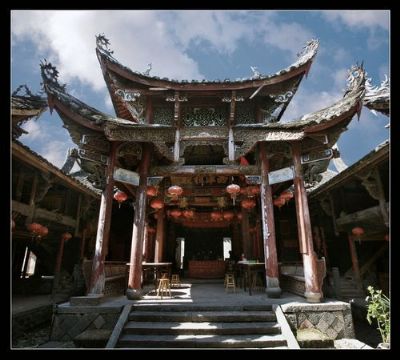
Lishui Wuwenjian Ci.
The Rich History of Lishui Wuwenjian Ci
The Lishui Wuwenjian Ci, or Wu Wenjian Ancestral Hall, is a remarkable testament to the rich heritage of the Wu family in Yuanshan Village, located in the scenic area of Qinyuan County, Zhejiang Province. Established in 1606 during the Ming Dynasty, this ancestral hall stands as a symbol of reverence for the ancestors and the cultural values they instilled in their descendants.
The name “Wuwenjian” pays homage to Wu Chuzhu, the founding ancestor of the Wu clan, who was posthumously honored with the title “Wen Jian” by Emperor Xuanzong of the Tang Dynasty. This designation reflects the scholarly achievements and moral integrity attributed to Wu Chuzhu, and the hall was constructed to honor his legacy.
Originally built in the 34th year of the Wanli reign (1606), the hall has undergone several renovations, notably in 1666 during the Kangxi era of the Qing Dynasty, following damage from war. The Wu family, recognizing the importance of preserving their ancestral roots, initiated fundraising efforts that led to the reconstruction of the hall, which now occupies an area of approximately 660 square meters.
Architecturally, the Wuwenjian Ci is a stunning example of traditional Chinese design. The layout features three main sections: the entrance pavilion, the main hall, and the rear hall, all arranged in a rectangular formation. The structure is characterized by its dignified and ancient appearance, combining functionality with aesthetic beauty. The main hall is adorned with intricate beams and a unique roof design, showcasing the exceptional craftsmanship of the period.
The hall not only serves as a site of worship and remembrance but also as a cultural hub for the local community. It has witnessed the passage of time, with the Wu family growing in prominence, contributing over 200 individuals to the ranks of civil service and earning the village the reputation of being a “crown jewel” in Qinyuan County.
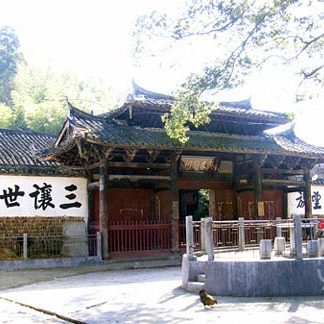
Lishui Wuwenjian Ci.
In recognition of its historical and cultural significance, the Wuwenjian Ci was designated as a national key cultural relic protection unit in October 2019. This accolade emphasizes the importance of preserving such sites, not just for the local community but for the appreciation of cultural heritage at large.
Today, the ancestral hall stands not only as a memorial to the Wu lineage but also as a reminder of the enduring values of filial piety and respect for one’s heritage, which continue to resonate within the local culture. Visitors to the site can explore this rich historical tapestry while enjoying the natural beauty that surrounds Yuanshan Village, making it a significant destination for both cultural and historical exploration in Zhejiang Province.
Main Highlights: What to See at Lishui Wuwenjian Ci
The Wu Wenjian Ancestral Hall, or 吴文简祠, is a remarkable cultural and historical site located in the picturesque Yuanshan Village of Qingyuan County, Lishui City, Zhejiang Province. Established in 1606 during the Ming Dynasty, this ancestral hall serves as a testament to the rich heritage of the Wu clan, dedicated to the memory of Wu Zhu, the clan’s founding ancestor, who was honored with the title “Wen Jian” by Emperor Xuanzong of the Tang Dynasty.
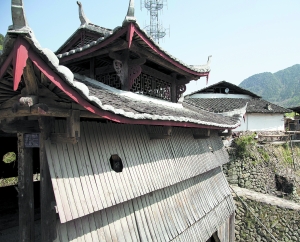
Lishui Wuwenjian Ci.
Architectural Grandeur
The ancestral hall boasts a traditional Chinese architectural style, featuring a rectangular layout that spans approximately 660 square meters. The structure comprises three main sections: the entrance pavilion, the main hall, and the rear hall, each meticulously designed with ornate details that reflect the artistry of the era. The entrance is adorned with a plaque inscribed with the name of the hall, flanked by additional inscriptions that highlight the family’s lineage and cultural significance.
Cultural Significance
Wu Wenjian Ci is not just an architectural gem; it is a vital repository of local history and culture. The hall has witnessed the flourishing of the Wu family, which has produced over 200 notable figures throughout history, earning the village a reputation as a cradle of intellectual and military prowess. Visitors can immerse themselves in the stories of these ancestors, gaining insight into the values of filial piety and respect for tradition that are deeply embedded in Chinese culture.
Scenic Location
Nestled against the backdrop of lush mountains and flowing streams, the Wu Wenjian Ancestral Hall is ideally situated, offering visitors a serene environment to reflect and explore. The natural beauty surrounding the hall enhances the overall experience, making it a perfect spot for photography, leisurely walks, and cultural exploration.
Recent Recognitions
In 2019, the Wu Wenjian Ancestral Hall was listed as a National Key Cultural Heritage Site, further cementing its importance in preserving China’s historical and cultural landscape. This recognition allows for continued efforts to maintain and promote the hall, ensuring that future generations can appreciate its significance.
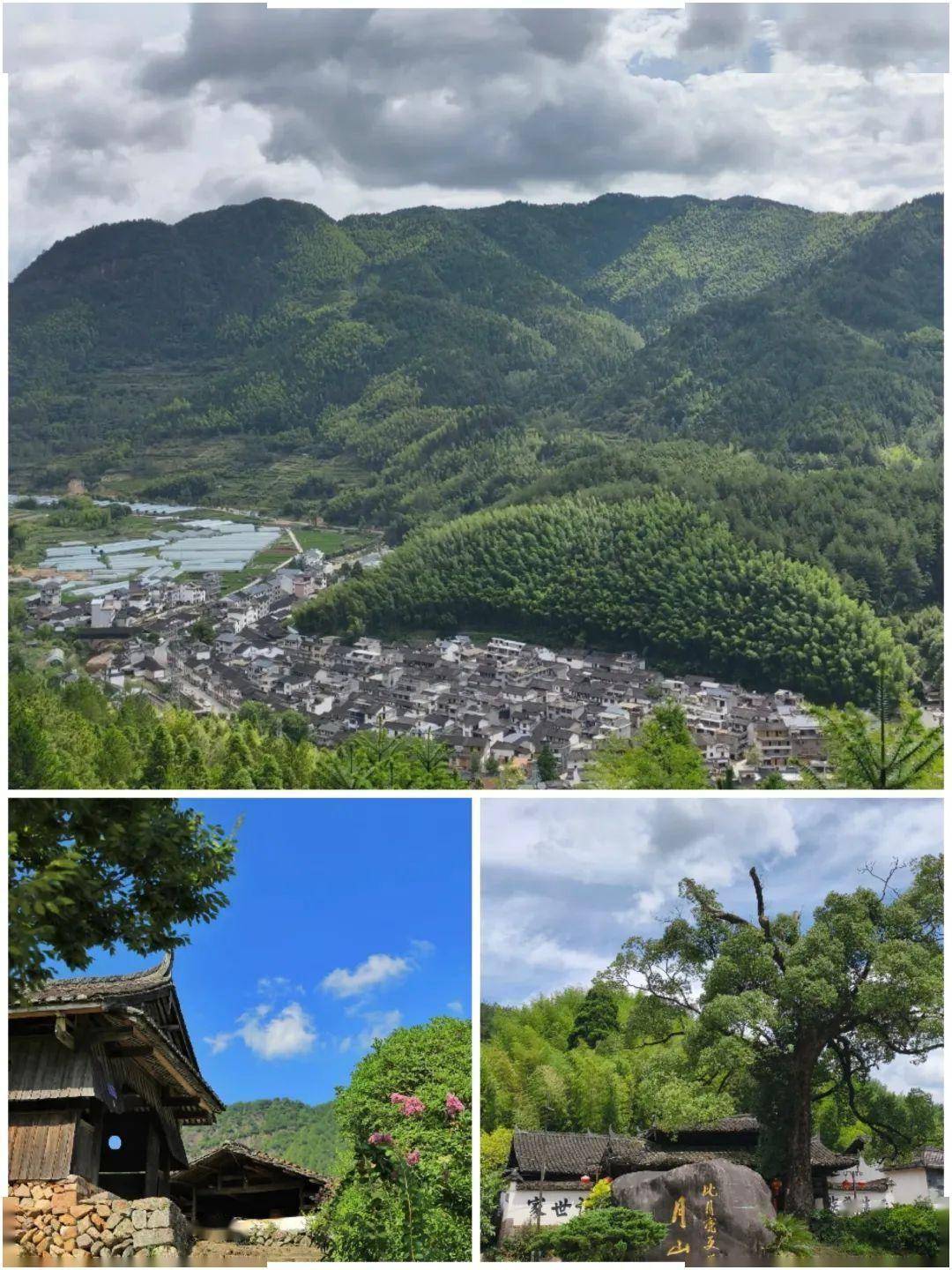
Lishui Wuwenjian Ci.
Nearby Attractions
While visiting the ancestral hall, be sure to explore the surrounding Yuanshan Village, known for its ancient bridges and rich cultural tapestry. The village is home to several other attractions, including the Langqiao Museum and the picturesque landscapes that characterize this charming region.
A visit to Wu Wenjian Ci is not merely a journey through history; it is an opportunity to engage with the cultural roots of the Wu family and the broader heritage of Zhejiang Province, making it a must-see destination for any traveler interested in exploring China’s rich past.
Planning Your Visit: A Practical Guide
Practical Guide to Visiting Lishui Wuwenjian Ci (吴文简祠)
Nestled in the picturesque Yuanshan Village of Qinyuan County, the Wuwenjian Ci offers a unique glimpse into the historical and cultural heritage of the Wu family, as well as the architectural wonders of ancient China. Here’s everything you need to know for a successful visit to this significant site.
Location and Accessibility
Wuwenjian Ci is located in Yuanshan Village, Qinyuan County, approximately 57 kilometers southeast of Lishui City in Zhejiang Province. The site can be accessed via local transportation options, including buses and taxis from the city center. If driving, follow the signs to Qinyuan County, then to Yuanshan Village, where the ancestral hall is situated near the famous Laifeng Bridge, set against a stunning backdrop of mountains and streams.
Opening Hours
Typically, Wuwenjian Ci is open for visitors from 8:00 AM to 5:00 PM. However, it is advisable to check local resources for any seasonal changes or specific holidays that may affect opening times.
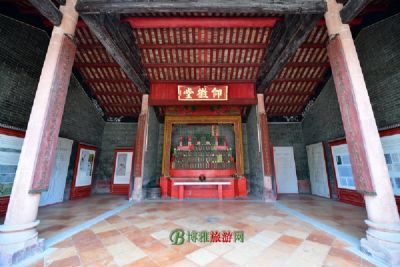
Lishui Wuwenjian Ci.
Entrance Fees
Visiting the Wuwenjian Ci is generally free; however, you might want to bring some cash, as there may be small fees for guided tours or related activities. Always confirm on arrival to avoid unexpected costs.
Best Time to Visit
The ideal time to visit Wuwenjian Ci is during the spring and autumn months (April to June and September to November) when the weather is mild and the natural scenery is at its most beautiful. Avoid the peak summer months when temperatures can rise and the site may become crowded.
What to Expect
Wuwenjian Ci, built in 1606 and renovated in 1666, is a tribute to the ancestral figure Wu Zhu, who was posthumously honored as “Wen Jian.” The structure features traditional Chinese architectural elements, including three courtyards and five bays, set in a rectangular layout of approximately 660 square meters. Visitors can admire the intricately designed wooden beams and pillars, as well as the serene gardens that surround the hall.
As you explore the site, take note of the historical significance of the Wu clan, which has produced over 200 notable figures throughout history. The site is not only a cultural monument but also a place of reflection on the values of filial piety and respect for ancestors.
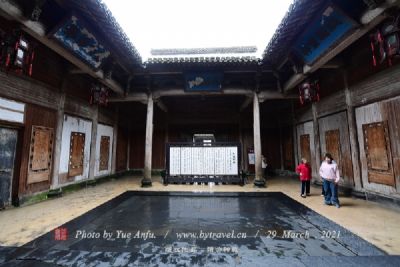
Lishui Wuwenjian Ci.
Nearby Attractions
After visiting Wuwenjian Ci, consider exploring other local attractions:
- Laifeng Bridge: A beautiful ancient bridge that exemplifies local architectural styles.
- Yuyuan Garden: A tranquil garden nearby that offers a peaceful retreat.
- Qinyuan Mushroom Museum: Dive into the region’s rich mushroom cultivation culture.
Cultural Etiquette
When visiting Wuwenjian Ci, it’s important to respect local customs and traditions. Dress modestly, especially in sacred spaces, and refrain from loud conversations. If you’re interested in photography, always ask for permission before taking pictures of locals or their property.
Local Cuisine
Don’t miss the opportunity to try local dishes while in Qinyuan County. Look for small family-run restaurants near the Wuwenjian Ci, where you can sample traditional Zhejiang cuisine, including fresh mushrooms and local specialties.
Tips for a Memorable Visit
- Wear Comfortable Shoes: The site may involve some walking, so comfortable footwear is essential.
- Bring a Local Guide: Hiring a local guide can enhance your understanding of the site’s history and significance.
- Stay Hydrated: Bring water, especially during warmer months, to stay refreshed during your exploration.
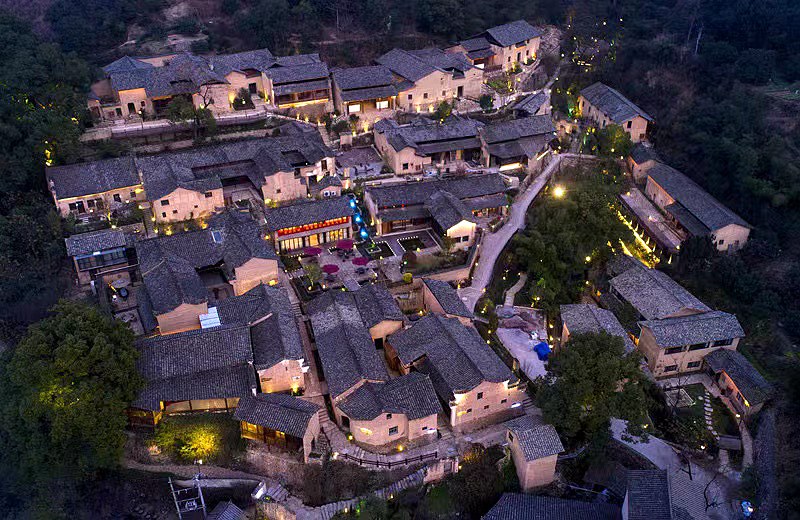
Lishui Wuwenjian Ci.
By following this guide, you’re set for a rewarding visit to Lishui Wuwenjian Ci, where history, culture, and natural beauty converge. Enjoy your journey through this enchanting part of China!
Tickets, Hours, and Booking
Visitors planning to explore the Wu Wenjian Shrine (吴文简祠) in Lishui, Zhejiang Province will find the experience both enriching and accessible. The shrine, located in the picturesque Yueshan Village of Qingyuan County, is an important cultural heritage site dating back to the Ming Dynasty in 1606, and it showcases the architectural beauty and historical significance of the Wu clan.
Ticket Information
-
Admission Fee: Entry to the Wu Wenjian Shrine is generally free of charge, allowing all visitors to appreciate the historical and cultural value of this revered location without any financial barrier. However, donations for the preservation of the shrine and its surroundings are welcomed.
-
Opening Hours: The shrine is open to visitors year-round, but it is advisable to check in advance for specific visiting hours, particularly during public holidays or local festivals when special events may be held.
-
Guided Tours: While self-guided exploration is encouraged, guided tours may be available for those seeking a deeper understanding of the shrine’s history and significance. It’s recommended to inquire locally or at nearby tourist information centers for arrangements.
-
Accessibility: The shrine is situated in a scenic area, making it a delightful destination for both history enthusiasts and nature lovers. However, visitors with mobility challenges should confirm accessibility options ahead of their visit.
-
Nearby Attractions: After visiting the Wu Wenjian Shrine, you can explore the surrounding area, which boasts other historical sites and natural beauty, including ancient bridges and lush landscapes. Consider planning a day trip to fully enjoy the cultural richness of Yueshan Village.
Additional Tips
-
Transportation: Reachability to Yueshan Village is facilitated by local transportation options, including buses and taxis from nearby towns. It’s advisable to check the latest travel schedules and plan accordingly.
-
Local Cuisine: Don’t miss the chance to sample local dishes at nearby eateries, which often feature traditional flavors and ingredients unique to the region.
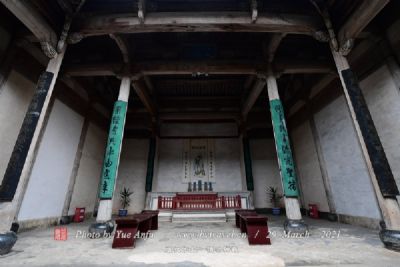
Lishui Wuwenjian Ci.
By visiting the Wu Wenjian Shrine, you not only gain insight into the rich heritage of the Wu clan but also contribute to the ongoing preservation of this historic site. Enjoy your journey through time in the heart of Zhejiang!
How to Get There
Reaching Lishui Wuwenjian Ci, located in the picturesque Yuanshan Village of Qingyuan County, is a delightful journey through the natural and cultural landscapes of Zhejiang Province. Here’s how you can navigate to this historical site efficiently.
Getting There
By Car
Driving to Wuwenjian Ci is a straightforward option, especially for those who enjoy the flexibility of exploring at their own pace. The site is situated approximately 57 kilometers southeast of Qingyuan County, making it easily accessible via local roads. The drive offers scenic views of lush mountains and rivers, enhancing your travel experience. If you’re coming from Lishui City, take the G15 expressway, then switch to local roads towards Qingyuan County. Be sure to have a GPS or a map handy, as some rural roads can be less clearly marked.
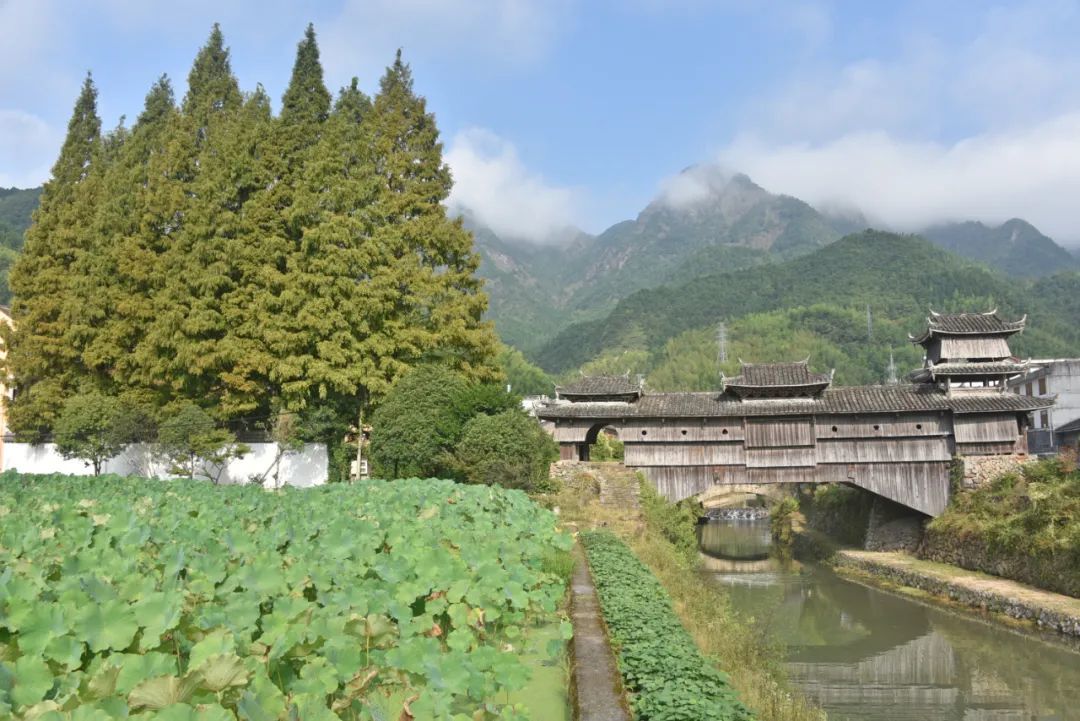
Lishui Wuwenjian Ci.
Public Transportation
For those preferring public transport, buses run regularly from Lishui and Qingyuan to Yuanshan Village. Here’s a quick guide on how to navigate the bus system:
-
From Lishui City: You can catch a direct bus to Qingyuan County at the Lishui Bus Station. The journey takes about 1-1.5 hours, depending on traffic.
-
From Qingyuan County: Upon arrival in Qingyuan, transfer to a local bus or take a taxi to Yuanshan Village. The bus ride is about 30 minutes. Make sure to check the local bus schedules, as they can vary throughout the day.
Taxis and Ride-Sharing
Taxis are available in both Lishui and Qingyuan, providing a convenient and direct way to reach Wuwenjian Ci. Additionally, ride-sharing apps may operate in the area, allowing for easy booking right from your smartphone. This can be a great option, especially if you’re traveling in a group, as it offers the comfort of door-to-door service.
Exploring the Area
Once you arrive in Yuanshan Village, you’ll find that the Wuwenjian Ci is well-marked and within walking distance from the main entrance of the village. The site is surrounded by beautiful natural scenery, so consider setting aside time for a leisurely stroll around the area.
If you’re interested in further exploring the local culture, nearby attractions include ancient bridges and traditional architecture, all easily accessible by foot.
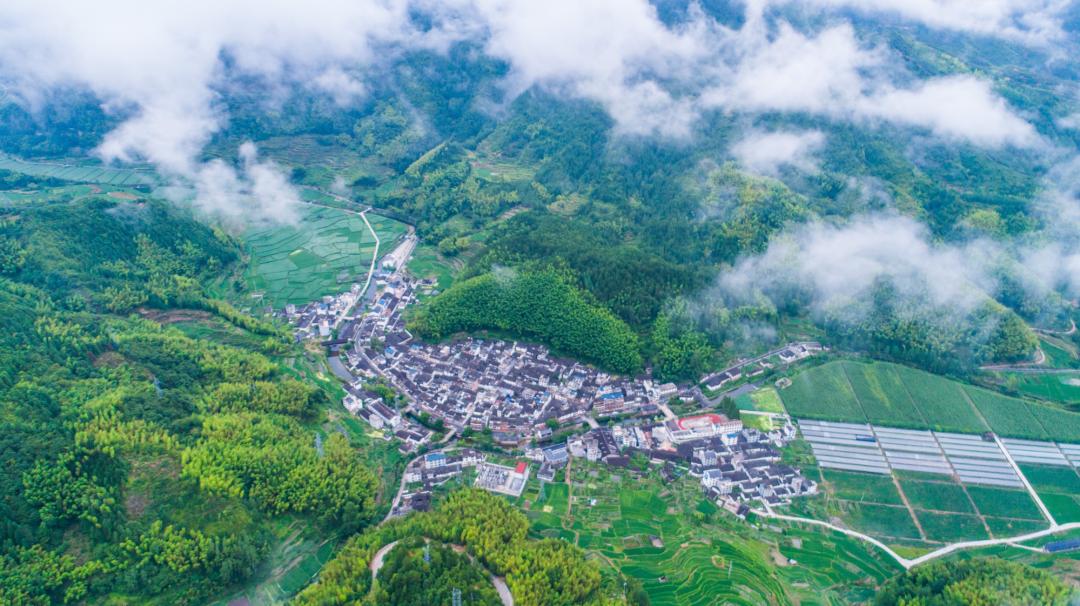
Lishui Wuwenjian Ci.
Tips for Travelers
- Best Time to Visit: The ideal time to visit is during the spring and autumn months when the weather is mild, and the landscapes are particularly beautiful.
- Local Cuisine: After your visit, don’t miss out on trying local dishes at nearby restaurants, which often serve fresh ingredients sourced from the surrounding countryside.
- Cultural Respect: Being a historical site, it’s important to be respectful of the surroundings and adhere to any posted rules or guidelines.
With these transportation options and tips, your visit to Lishui Wuwenjian Ci will be a seamless and enriching experience, allowing you to immerse yourself in the history and beauty of this charming region.
Local Cuisine and Accommodation
When visiting the enchanting Lishui Wuwenjian Ci, located in the picturesque village of Yuèshān in Qīngyuán County, you’ll find a delightful array of local cuisine and cozy accommodations that enhance your travel experience.
Culinary Experience
The region surrounding Wuwenjian Ci is known for its fresh, local ingredients and traditional cuisine. Visitors can indulge in a variety of dishes that reflect the area’s agricultural heritage. Here are some must-try local specialties:
-
Mushroom Dishes: Celebrated as the “Mushroom Capital,” Qīngyuán offers a range of mushroom dishes, including fragrant stir-fries and soups that showcase the rich umami flavors of locally sourced fungi.
-
Yellow Wine: This traditional beverage, crafted from local grains, is a perfect pair with many dishes. Enjoy a glass of sweet or dry yellow wine while savoring the local fare.
-
Farmhouse Cuisine: Many small restaurants and eateries in the village serve authentic farmhouse meals. Dishes often include seasonal vegetables, free-range chicken, and handmade noodles, all prepared using traditional methods.
-
Freshwater Fish: With the nearby streams, freshwater fish is a staple. Grilled or steamed fish seasoned with local herbs and spices can be found on many menus, offering a taste of the region’s natural bounty.
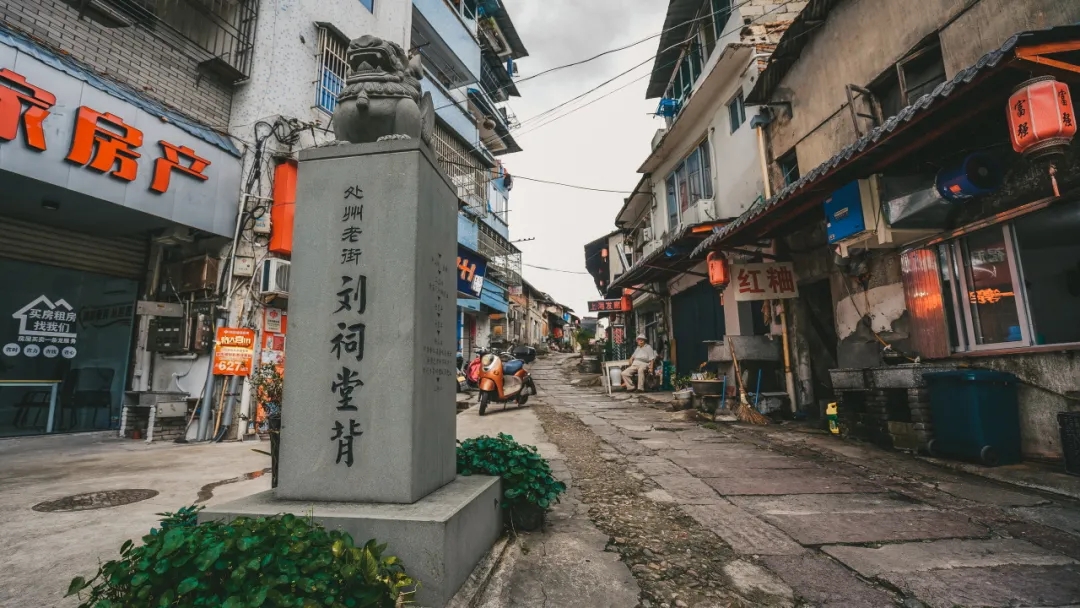
Lishui Wuwenjian Ci.
For a more casual dining experience, consider visiting local eateries along the bridges in the village where you can enjoy simple, hearty meals at affordable prices.
Accommodation Options
When it comes to accommodation, Yuèshān offers several charming options, ranging from cozy guesthouses to rustic homestays, all designed to provide a comfortable and authentic experience.
-
Qìfēng Jiāyuán (栖凤家园): Located near the famous Laifeng Bridge, this guesthouse offers stunning views of the surrounding landscape. The rooms are clean and well-appointed, and the owners are known for their warm hospitality. Enjoy breakfast made with local ingredients before heading out to explore the nearby attractions.
-
Rural Homestays: Many local families have opened their homes to visitors, providing an immersive experience. Staying with a family allows you to engage with the culture and traditions of the area. Don’t miss the chance to participate in making traditional dishes or enjoying local festivities during your stay.
-
Small Inns and Hotels: There are several small inns within walking distance of Wuwenjian Ci, where you can find comfortable accommodations at reasonable prices. These often feature traditional architecture and offer a peaceful retreat after a day of sightseeing.
-
Farm Stays: For those seeking a more unique experience, consider a farm stay where you can immerse yourself in rural life, help with daily chores, and enjoy farm-fresh meals.
In conclusion, whether you’re savoring the local cuisine or enjoying a restful night in one of the charming accommodations, your visit to Lishui Wuwenjian Ci will be enriched by the flavors and hospitality of this beautiful region.
Frequently Asked Questions
-
What is the history of Wuwenjian Ci?
Wuwenjian Ci, or the Wu Wenjian Ancestral Hall, was first built in 1606 during the Ming Dynasty and reconstructed in 1666 during the Qing Dynasty. It commemorates Wu Zhu, the founder of the Wu clan, who was posthumously honored as “Wen Jian” by the Tang Dynasty. -
Where is Wuwenjian Ci located?
The hall is situated at the entrance of Yue Mountain Village in Jushui Township, Qingyuan County, Lishui City, Zhejiang Province. It is easily accessible from the nearby Laifeng Bridge. -
What are the architectural features of Wuwenjian Ci?
The hall features a traditional Chinese structure with three main buildings arranged in a rectangular layout. It has a total area of approximately 660 square meters, characterized by its solemn and ancient design, complete with intricate wooden carvings and a beautiful three-gabled roof. -
Is Wuwenjian Ci a protected cultural site?
Yes, in October 2019, Wuwenjian Ci was designated as a key cultural relic protection unit by the State Council of China, highlighting its historical and architectural significance. -
What can visitors expect to see at Wuwenjian Ci?
Visitors can explore the impressive architecture, learn about the Wu clan’s heritage, and appreciate the tranquil natural surroundings that include nearby streams and mountains. The hall is a testament to the cultural richness of the area. -
Are there any nearby attractions to visit?
Yes, visitors can explore several nearby attractions, including the ancient bridges of Yue Mountain, the Mushroom Museum, and various scenic spots like the Baishanzu Mountain and the picturesque landscapes of the region. -
What is the best time to visit Wuwenjian Ci?
The ideal time to visit is during the spring and autumn months when the weather is mild, and the surrounding nature is vibrant. However, the hall offers a unique charm in all seasons, especially when enveloped in mist during rain. -
Are there any facilities for tourists at the site?
While Wuwenjian Ci primarily focuses on cultural preservation, there are local eateries and accommodation options in Yue Mountain Village, allowing visitors to enjoy authentic regional cuisine and stay overnight to explore the area more thoroughly.
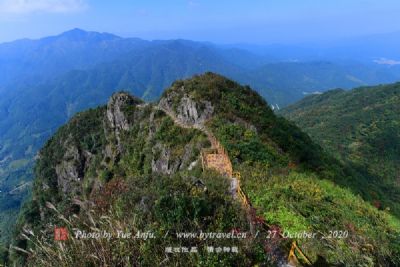
Lishui Wuwenjian Ci.
Final Thoughts on Your Trip
Visiting the Wuwenjian Ci (吴文简祠) in Lishui’s picturesque Yuanshan Village is more than just a trip to a historical site; it’s an invitation to step into the rich tapestry of Chinese heritage. This ancestral hall, dedicated to the esteemed Wu family, not only showcases stunning traditional architecture but also serves as a poignant reminder of the values of respect for elders and familial devotion that are deeply embedded in Chinese culture.
As you wander through its serene courtyards and contemplate the lives of the many scholars and officials who have hailed from this lineage, you’ll feel the enduring spirit of the past come alive. The hall’s graceful design and tranquil surroundings encapsulate the essence of the region’s history, offering visitors a glimpse into the lives of those who shaped its legacy.
For travelers seeking to connect with China’s cultural roots, the Wuwenjian Ci stands as a testament to the power of memory and tradition. It’s a place where the stories of ancestors continue to inspire, reminding us that every visit is not just a journey through time, but an opportunity to reflect on our own heritage and the values we carry forward. Whether you’re an architecture enthusiast, a history buff, or simply looking for a peaceful retreat, this extraordinary site promises an enriching experience that resonates long after you leave.
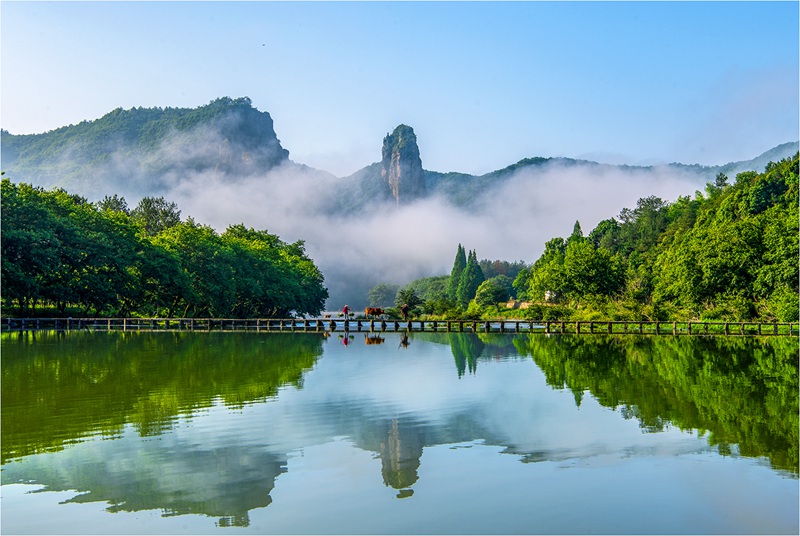
Lishui Wuwenjian Ci.
